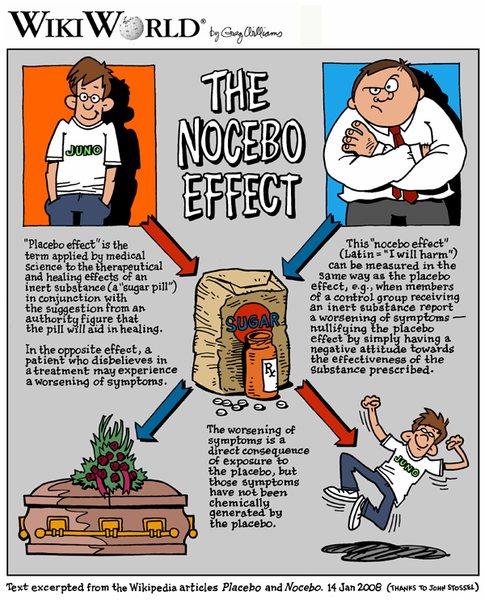Objective: This paper aims to provide an overview on the nocebo effect, focusing on recognition, its phenomenology, at-risk demographic profiles, clinical situations and personality factors, as well as discriminating somatic symptoms in the general population from treatment-related adverse effects. Lastly, the paper addresses available evidence-based strategies for management and minimisation of the nocebo effect.
Method: Data for this paper were identified by searching PubMed using the search terms "nocebo" and "nocebo effect", augmented by a manual search of the references of the key papers and the related literature.
Results: The nocebo effect refers to non-pharmacodynamic, harmful or undesirable effects occurring after inactive treatment, a phenomenon that also occurs in the context of active therapy. Known drivers include classical conditioning and negative expectations concerning treatment. Recent meta-analyses have reported a considerable prevalence, ranging from 18% in the symptomatic treatment of migraine, to more than 74% in multiple sclerosis. Recognition of the nocebo-driven adverse effects presents a challenge, especially because of its non-specific nature and the similarity to the active medication's expected profile. Traits such as neuroticism, pessimism and type A personalities may predispose individuals to this phenomenon. Clinical management of the nocebo effect includes awareness and recognition, changing the manner of disclosure of potential drug-related adverse effects, shaping patients' expectations and enhancing the treatment alliance.
Conclusion: The nocebo effect is a common, clinically significant, yet covert driver of clinical outcomes. Increased awareness of its features, as well as knowledge of strategies on how to manage it, are fundamental so that clinicians can mitigate its impact on clinical practice.
"In these cases, there is no 'real' drug involved, but the actual negative consequences of the administration of the inert drug, which may be physiological, behavioural, emotional, and/or cognitive, are nonetheless real."
"Just when you thought it was safe to into the water again! This is an important phenomenon; we deal with it all the time. Just as some MSers derive benefit from placebos some are harmed by them."
